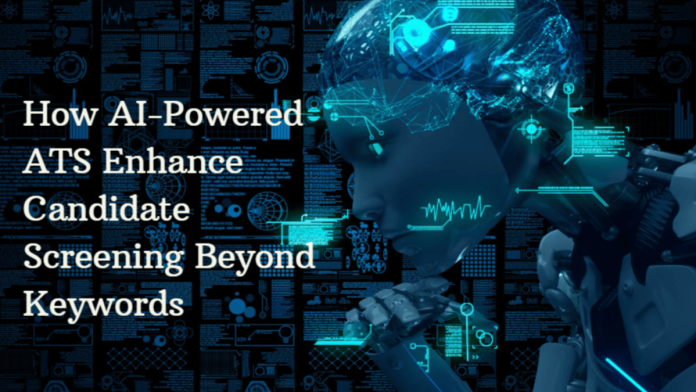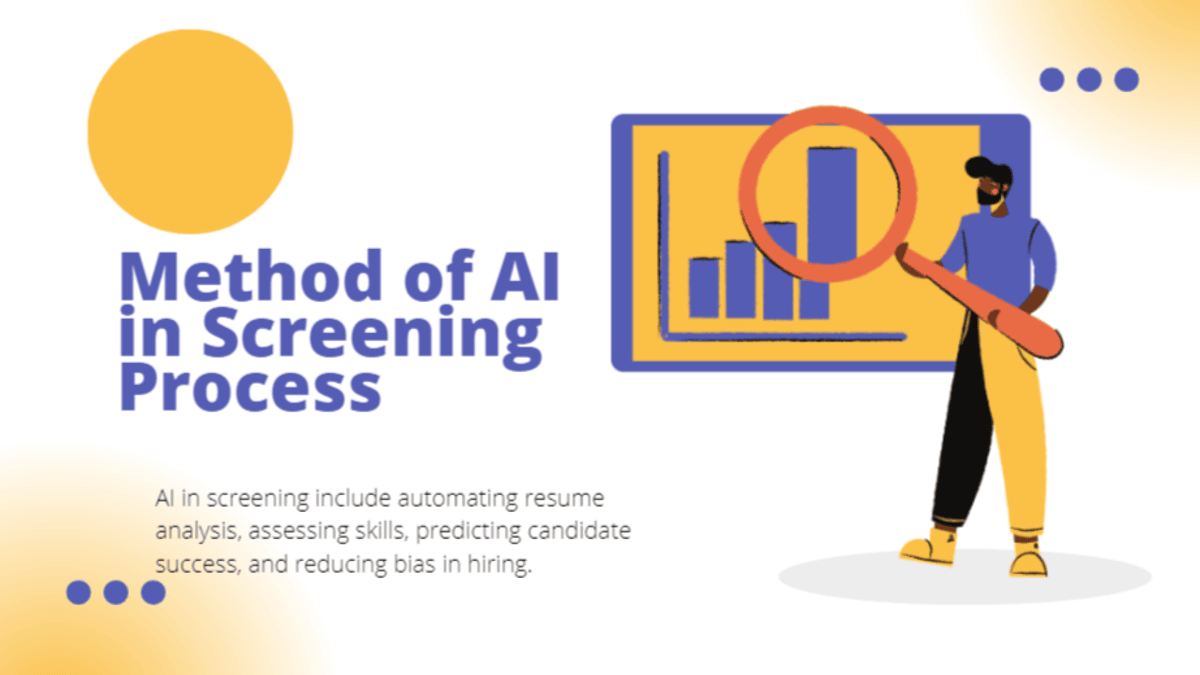Finding the right talent is challenging with traditional Applicant Tracking Systems (ATS) that rely on basic keyword searches. AI-powered ATS, however, use artificial intelligence for advanced AI candidate screening, offering deeper analysis of candidates’ experience and soft skills. This sophisticated approach helps recruiters identify top talent more effectively. In this article, we’ll explore how AI-driven screening is revolutionizing recruitment and enhancing candidate selection.
What is AI Candidate Screening?
AI candidate screening is the use of artificial intelligence to evaluate job applicants. It involves analyzing resumes, assessing skills, and predicting job fit using advanced algorithms and data analysis. AI candidate screening automates and improves the accuracy of selecting candidates by going beyond simple keyword matching to evaluate a range of factors like experience, skills, and potential success.
The Limitations of Traditional Keyword Screening
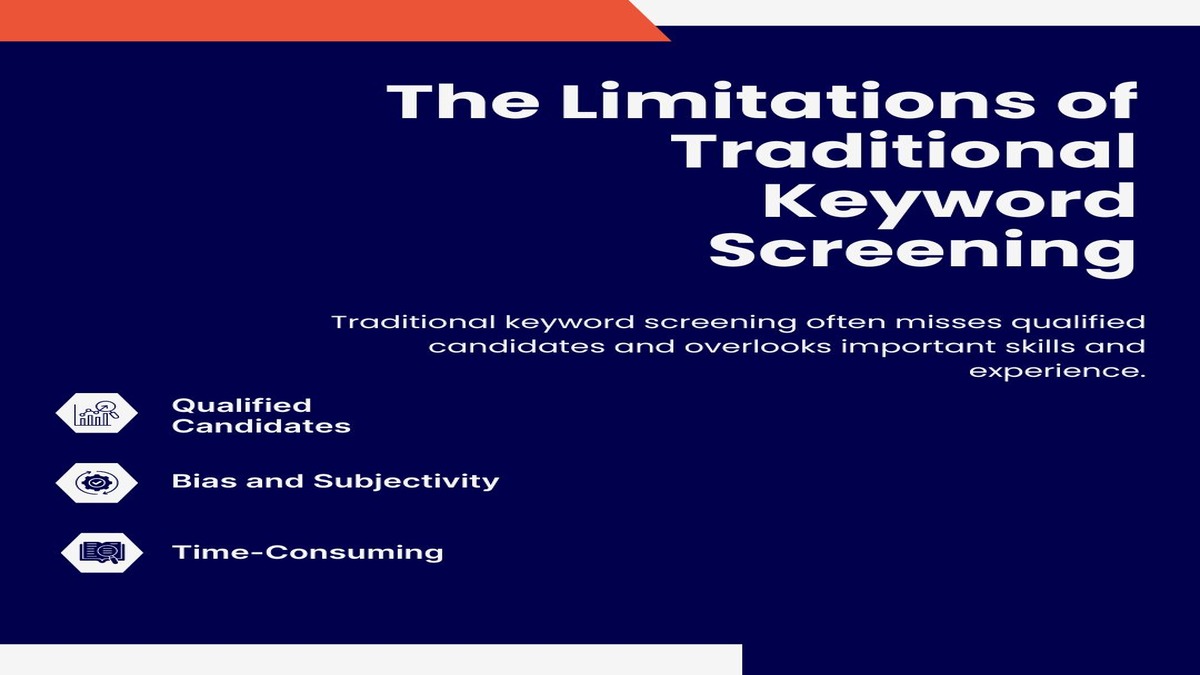
Historically, AI candidate screening has relied heavily on keyword matching, where recruiters sift through resumes and applications based on specific terms related to skills, experience, and qualifications. While this method can help identify candidates who meet basic requirements, it has several limitations:
- Overlooking Qualified Candidates: Candidates may possess relevant skills and experience but use different terminology or phrasing in their resumes. This discrepancy can lead to qualified individuals being overlooked simply because their resumes do not contain the exact keywords specified.
- Bias and Subjectivity: Relying solely on keywords can introduce bias into the screening process, as recruiters may unconsciously favor candidates whose resumes fit a particular mold, ignoring diverse talent that could bring valuable perspectives to the organization.
- Time-Consuming: Manual screening of resumes based on keywords can be a labor-intensive process, consuming valuable time that recruiters could spend on more strategic tasks, such as engaging with candidates and building relationships.
The Role of AI in Candidate Screening
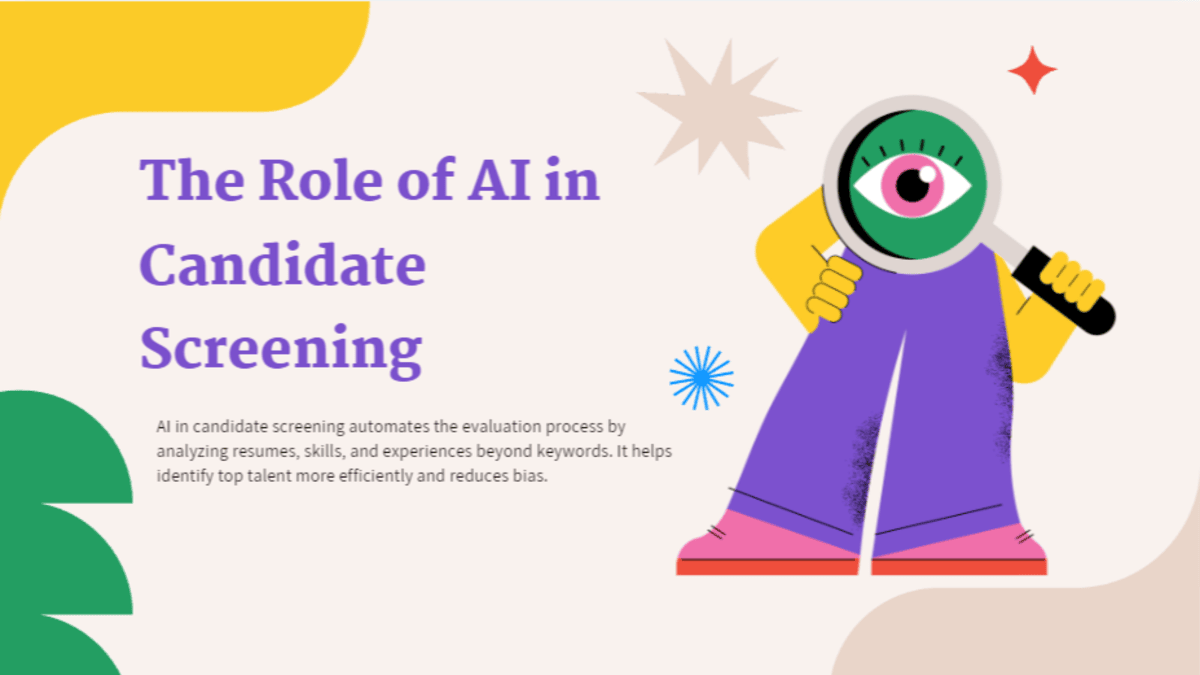
AI candidate screening addresses these limitations by employing advanced algorithms and machine learning techniques to analyze resumes and applications holistically. Here’s how AI-powered ATS enhances candidate screening beyond mere keyword matching:
1. Contextual Understanding
AI-powered ATS can interpret the context in which keywords appear, allowing for a deeper understanding of a candidate’s experience and qualifications. For instance, instead of simply looking for the term “project management,” an AI candidate screening system can analyze how the candidate has applied project management skills in various roles, assessing the relevance and depth of their experience.
2. Natural Language Processing (NLP)
Natural Language Processing enables AI systems to understand human language in a more nuanced way. By using NLP, AI candidate screening can evaluate resumes and cover letters for sentiment, tone, and the overall narrative presented by the candidate. This capability allows recruiters to identify candidates who not only possess the required skills but also align with the company’s culture and values.
3. Skill and Competency Assessment
AI candidate screening goes beyond surface-level qualifications by assessing candidates’ skills and competencies through various means. For example, some AI-powered ATS can integrate skills assessments or coding challenges directly into the application process. This allows recruiters to evaluate candidates based on their actual abilities rather than relying solely on what they claim in their resumes.
4. Predictive Analytics
AI candidate screening utilizes predictive analytics to assess candidates’ potential fit for specific roles. By analyzing historical hiring data and performance metrics, AI systems can identify patterns that correlate with successful hires. This predictive capability enables recruiters to make more informed decisions, focusing on candidates who are likely to excel in the organization.
5. Bias Reduction
AI candidate screening can help mitigate unconscious bias in the hiring process. By standardizing the evaluation criteria and focusing on data-driven insights, AI systems can promote a more equitable selection process. This not only enhances diversity within the organization but also fosters an inclusive workplace culture.
AI is revolutionizing the candidate screening process, offering innovative solutions that enhance efficiency and effectiveness. Here are the main applications of AI in the screening process, explained in detail:
1. Resume Screening and Parsing
AI-powered systems utilize advanced algorithms and natural language processing (NLP) to automate the resume screening process. Unlike traditional methods that rely solely on keyword matching, AI can analyze resumes in context, extracting relevant information such as skills, experience, and qualifications. This capability allows recruiters to assess candidates more holistically, identifying those who may not use exact keywords but possess the necessary competencies. By automating this initial screening phase, AI significantly reduces the time and effort required to sift through large volumes of applications, enabling recruiters to focus on engaging with the most promising candidates.
2. Chatbots for Candidate Engagement
AI chatbots have become invaluable tools in recruitment, enhancing communication and engagement with candidates. These chatbots can interact with applicants in real-time, answering questions, providing information about job openings, and guiding them through the application process. By automating initial interactions, chatbots ensure that candidates receive timely responses, which improves their overall experience. Additionally, chatbots can conduct preliminary screenings by asking qualifying questions, allowing recruiters to identify suitable candidates early in the process. This not only saves time but also fosters a positive impression of the organization, as candidates feel valued and supported.
3. Skills and Competency Assessments
AI can enhance the evaluation of candidates’ skills and competencies through Integrated assessments. For instance, AI-driven platforms can administer skills tests or coding challenges as part of the application process, allowing recruiters to gauge candidates’ abilities accurately. By evaluating actual performance rather than relying solely on self-reported skills in resumes, AI candidate screening ensures a more reliable assessment of a candidate’s fit for the role. This capability helps organizations identify top talent who possess the necessary skills to excel in their positions.
4. Background Checks and Verification
AI streamlines the background check process by automating the verification of candidate information. AI systems can cross-reference data against public records and databases to confirm employment history, educational qualifications, and other critical details. This automation not only speeds up the verification process but also reduces the likelihood of human error. By ensuring that candidates meet the necessary qualifications and have a clean background, AI-powered screening enhances the overall quality of hires and mitigates potential risks associated with hiring.
5. Predictive Analytics
AI candidate screening leverages predictive analytics to forecast a candidate’s potential success within an organization. By analyzing historical hiring data and performance metrics, AI systems can identify patterns that correlate with successful hires. This predictive capability allows recruiters to make more informed decisions, focusing on candidates who are likely to thrive in the role. By incorporating data-driven insights into the screening process, organizations can enhance their hiring strategies and improve overall workforce quality.
Enhancing the Candidate Experience
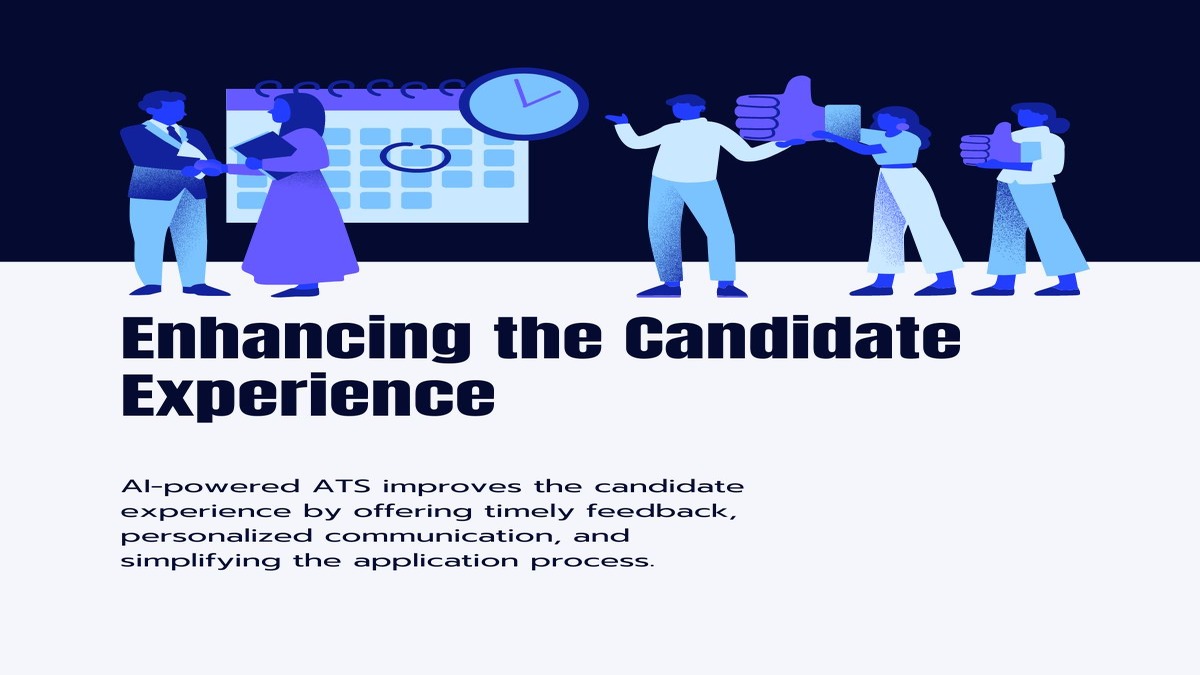
In addition to improving the screening process for recruiters, AI-powered ATS also enhances the candidate experience. By providing timely feedback and personalized communication, these systems can keep candidates engaged throughout the hiring process. Furthermore, AI can help streamline the application process, making it easier for candidates to submit their information and track their application status.
Conclusion
AI-powered ATS are revolutionizing candidate screening by going beyond simple keyword matching. They use contextual understanding and natural language processing to better grasp the nuances of resumes. With tools for skill assessment and predictive analytics, AI offers a deeper, more accurate view of candidates’ abilities and potential. Additionally, AI helps reduce bias, promoting fairer and more inclusive hiring practices. As more organizations adopt these advanced technologies, they will enhance their hiring outcomes and offer a more engaging experience for candidates. Embracing AI allows businesses to attract and keep top talent in a competitive job market.
FAQs about how AI-powered ATS enhance candidate screening beyond keywords
1. What is an AI-powered ATS?
Ans: An AI-powered Applicant Tracking System (ATS) uses artificial intelligence to streamline and improve the recruitment process. It goes beyond basic keyword matching to analyze resumes, assess skills, and predict candidate success using advanced algorithms and data analysis.
2. How does AI improve resume screening?
Ans: AI enhances resume screening by understanding the context and meaning behind the text, rather than just matching keywords. It can extract and evaluate relevant information such as skills and experiences, providing a more accurate assessment of a candidate’s suitability.
3. What is natural language processing (NLP) in AI-powered ATS?
Ans: Natural Language Processing (NLP) is a technology used by AI-powered ATS to understand and interpret human language in resumes and cover letters. NLP helps the system grasp the context and intent of the content, improving the accuracy of candidate evaluation.
4. How does AI handle skill assessments?
Ans: AI-powered ATS can administer and evaluate skill tests or coding challenges to assess candidates’ abilities objectively. This provides a more accurate measure of their skills compared to self-reported information on resumes.
5. What role does predictive analytics play in AI candidate screening?
Ans: Predictive analytics uses historical hiring data and performance metrics to forecast a candidate’s potential success in a role. This helps recruiters make more informed decisions by identifying candidates who are likely to excel.
6. How does AI reduce bias in the recruitment process?
Ans : AI can be programmed to minimize unconscious bias by focusing on objective criteria and data rather than subjective judgments. This promotes fairer and more inclusive hiring practices.
7. Can AI-powered ATS integrate with other HR tools?
Ans: Yes, many AI-powered ATS can integrate with other HR tools, such as performance management systems and onboarding platforms, to provide a seamless recruitment and employee management experience.
8. How does AI enhance candidate experience?
Ans: AI improves candidate experience by providing timely feedback, answering questions through chatbots, and offering a more personalized and engaging application process. This helps candidates feel valued and informed throughout their journey.
9. What are the benefits of AI in handling high-volume recruiting?
Ans: AI can quickly process large volumes of applications, efficiently screening and ranking candidates. This speeds up the recruitment process, allowing recruiters to focus on top candidates and reduce time-to-hire.
10. Are there any limitations to AI-powered ATS?
Ans: While AI-powered ATS offer many advantages, they are not without limitations. They may still require human oversight to ensure accuracy and fairness, and the effectiveness of AI depends on the quality of the data and algorithms used. Additionally, there can be concerns about data privacy and the potential for bias if the AI system is not properly designed.
Read More:Unlocking Efficiency: How AI is Revolutionizing Applicant Tracking Systems

